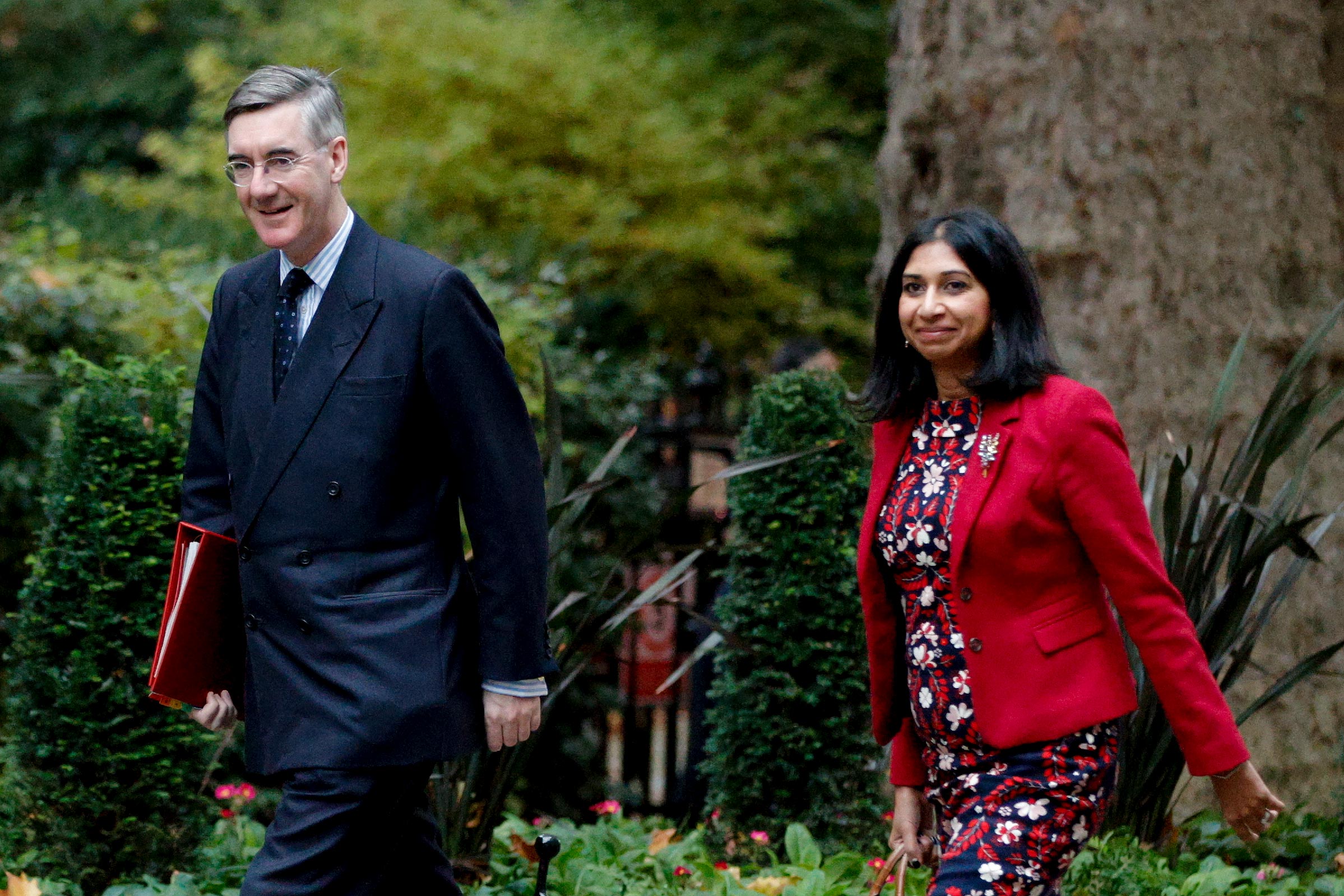Is the European Research Group Losing Its Grip on the Tory Party?
Fractures seem to be forming.
by Helen Belcher
1 November 2022

For the last 30 years, one organisation in particular has had a significant impact on Tory politics and, by extension, on the whole country. Sometimes it’s operated in the shadows, while at other times, the key players have been household names.
While this introduction may well apply to any number of rightwing lobbying groups, particularly those centred around Tufton Street, I’m using it to describe the European Research Group (ERG): a group of Conservative MPs, described as a “party within a party”. The ERG isn’t a formal parliamentary group, but any suitably eurosceptic Conservative MP can join, and it’s recognised by the Independent Parliamentary Standards Authority (IPSA) – the MPs’ expenses ‘watchdog’.
Originally set up in the 1990s under John Major’s Conservative government, the ERG’s ‘research’ was primarily designed to demonstrate how damaging the UK’s membership of the EU was. It’s not clear whether any of its work examined the potential advantages of belonging to a single market of over 500 million people. Instead, it seemed to look for predetermined outcomes.
Many of its members have gone on to be prominent political voices in the media and at the top of the Tory party, such as Jacob Rees-Mogg, Michael Gove, former leader Iain Duncan Smith, former and current home secretaries Priti Patel and Suella Braverman, and climate-sceptic media darling Steve Baker.
The ERG is shrouded in mystery. It’s understood to have between 34 and 54 Conservative MPs as members – but the fact that we don’t know (and I’ve asked – no answer yet) is telling. It makes up at least one tenth of all Conservative MPs, a good proportion of whom are regularly featured on national news media. OpenDemocracy’s research shows the group has been funded to the tune of hundreds of thousands of pounds through MPs’ expenses claims.
The group has been called the most “influential in recent political history”. Its key demand, leaving the EU, has been achieved – at least as far as the UK no longer sits around the EU’s table, helping to make its decisions.
With its central campaign focus achieved, the ERG’s secondary raison d’etre has come to the fore: giving a leg up to its members, acting as a ‘kingmaker’ within the Tory party. The ERG claimed the scalp of former prime minister Theresa May, assisted Boris Johnson in his ascent to the top job, and managed to push Liz Truss into 10 Downing Street too.
However, the ERG’s success might herald its downfall. Sections of the media – even now, gasp, the BBC – are no longer afraid of pinning blame for some of the country’s current economic calamities on Brexit, such as a 4% hit to GDP and new trade barriers which are proving a significant deterrent to export by small companies. The benefits of Brexit have been costed at one two hundredth of the loss of access to the EU’s single market.
The net effect is a smaller economy which has lost a good chunk of its overseas trade, making the UK more susceptible to economic storms, and increasing the likelihood of higher taxes. Meanwhile, having achieved its ostensible goal of both taking Britain out of Europe and anointing two ERG-allied prime ministers, the once-cohesive vision of the group is starting to fracture.
Collectively, all is not well. In the most recent Tory leadership race, the ERG couldn’t decide on a candidate, opting instead not to endorse any candidate just two hours before nominations closed. Splintering is taking place; Braverman and Baker have been reappointed to their ministerial briefs (as home secretary and minister for Northern Ireland respectively), while Rees-Mogg resigned his role as business and energy secretary and lost out in the reshuffle, despite penning a Telegraph piece attempting to row back on previous comments made about Rishi Sunak. Braverman’s recent scandals, including referring to immigration as an “invasion”, have also distanced her from former allies; two Tory ministers told the Times on Monday that even the ERG was “abandoning her”.
The media may also be turning on the ERG. Journalists such as Channel 4’s Krishnan Guru-Murthy are starting to interrogate the way some (or even many – we don’t know) of its members have used taxpayers’ money to fund the group. And as Brexit fails to live up to its promises, questions are rightly being asked about how we got here and who is responsible. Likewise, Truss’s spectacular downfall prompted more scrutiny of lobbying groups such as those that populate 55 Tufton Street and its wider orbit. It may well be that any incoming government finds, after the next general election, a public demand to seriously examine the role lobbying groups – particularly taxpayer funded ones – play in modern British politics.
In the meantime, ERG members are clearly looking for their next cause – and culture war. Baker is increasingly making noises about the supposed ‘threat’ posed by net zero goals via a brand new ‘Net Zero Scrutiny Group’ that’s following the ERG blueprint. Rees-Mogg has also taken up the climate fight – on the side of fracking. The pivot to a climate focus may well sound the death knell for the ERG in its current form, even at the apparent height of its success. But there’s no real reason for the group to exist anymore, and the spotlight on its workings may be getting uncomfortably hot. After all, how many successful social promotion groups can survive once they are forced from the shadows?
Helen Belcher is a Liberal Democrat councillor in Wiltshire and two-time parliamentary candidate.


